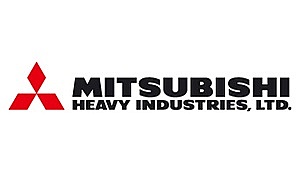MHI studies use of ammonia for power generation
 |
With support from its power solutions brand, Mitsubishi Power, MHI will examine the feasibility of utilising ammonia at the Suralaya coal-fired power station and an existing natural gas-fired power station in the country, derived from the abundant oil and natural gas produced in Indonesia. The goal is to establish an integrated ammonia value chain encompassing production, transport, fuel consumption, and CO2 storage.
The two proposals to carry out this study were recently adopted by Japan’s Ministry of Economy, Trade and Industry (METI), aiming to leverage the advanced technologies and expertise of Japanese companies to meet new global demand for infrastructure and contribute to global socioeconomic development. This is part of efforts to support energy decarbonisation in the country through the Asia Energy Transition Initiative.
Indonesia has announced the policy of deriving 23 per cent of its power supply from renewable energy by 2025, and 28 per cent by 2035.
MHI and Mitsubishi Power will make a concerted effort as a corporate group, working in cooperation with Indonesia’s state-owned power company group and the Bandung Institute of Technology to support approaches that help the country achieve its targets.
Going forward, with encouragement from METI’s adoption of these feasibility studies, MHI and Mitsubishi Power will contribute to further decarbonisation in Indonesia and provide momentum for the global deployment of the company’s net zero energy transition policy through the projects.
What the stars mean:
★ Poor ★ ★ Promising ★★★ Good ★★★★ Very good ★★★★★ Exceptional
Related Contents
Latest News
More News
- $100 million initiative launched to protect forests and boost rural incomes (January 30, 2026 | 15:18)
- Trung Nam-Sideros River consortium wins bid for LNG venture (January 30, 2026 | 11:16)
- Vietnam moves towards market-based fuel management with E10 rollout (January 30, 2026 | 11:10)
- Envision Energy, REE Group partner on 128MW wind projects (January 30, 2026 | 10:58)
- Vingroup consults on carbon credits for electric vehicle charging network (January 28, 2026 | 11:04)
- Bac Ai Pumped Storage Hydropower Plant to enter peak construction phase (January 27, 2026 | 08:00)
- ASEAN could scale up sustainable aviation fuel by 2050 (January 24, 2026 | 10:19)
- 64,000 hectares of sea allocated for offshore wind surveys (January 22, 2026 | 20:23)
- EVN secures financing for Quang Trach II LNG power plant (January 17, 2026 | 15:55)
- PC1 teams up with DENZAI on regional wind projects (January 16, 2026 | 21:18)

 Tag:
Tag:






















 Mobile Version
Mobile Version